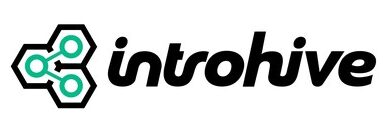How To Choose the Best Ecommerce CRM Platform for Your Business (2023)

When customers shop online, they provide ecommerce companies with a wealth of information about their demographics and activities. For ecommerce business owners, this can be both an opportunity and a burden. On one hand, you have access to an abundance of information that you can use to improve your sales and marketing processes. On the other hand, organizing, storing, and analyzing large amounts of consumer information is a massive task, and your data is no good to you if it overwhelms your ability to process it.
An ecommerce customer relationship management (CRM) system can help. Here’s how they work and how to choose the best option for your business.
What is an ecommerce CRM?
An ecommerce customer relationship management system (CRM) is a tool that helps online businesses collect, organize and analyze customer information. CRMs track customer progress through the sales funnel, manage sales and marketing campaigns, and are a repository of all customer data collected across multiple platforms and touchpoints such as your online store and social media channels.
Customers submit their information, make purchases, and log in to ecommerce accounts in many parts of an ecommerce platform. They may also submit their email address to receive a discount, create an account to make a payment, or shop directly from a social media page. Using a CRM can help you connect these disparate interactions to a single customer, making it easy for different departments in your business to analyze more complete customer data, and providing external users of your platforms with a cohesive customer experience.
Functions of ecommerce CRM software
The primary function of a CRM tool is to help businesses gather and store customer data in a centralized location where you and your team members can easily access it. CRM tools can also help you analyze customer information, communicate with your team, and execute sales or marketing actions based on insights about your customer base. Here’s an overview of a CRM’s key functions:
- Contact management. CRM tools can gather and store contact data for both current customers and sales prospects. This includes basic contact data (such as name, title, and email address), customer history, and customer engagement data. An ecommerce CRM can also automatically track customer interactions and store information including service call history and marketing engagement data.
- Communication management. CRMs provide a central source of information, which can ensure that sales teams, marketing teams, and customer support teams are all working from the same data. Some CRMs also include tools to help teams communicate about customer data, such as in-platform messaging and file and content sharing.
- Lead management. An ecommerce CRM can support your sales process by making it easy for you to monitor engagement data and use it to track the progress of a lead through the sales funnel.
- Sales and marketing campaign management. An ecommerce CRM can help you design and implement sales and marketing campaigns by targeting customers according to chosen demographic and activity criteria.
- Automation. Sales automation—which allows your sales team to automate tasks such as forecasting, making sales calls and following up with leads—is an important functionality provided by a CRM platform. You can also use CRMs to create automated workflows to handle many marketing automations, such as sending marketing emails and segmenting customers for more targeted and personalized outreach.
- Reporting and analytics. CRMs can generate reports on sales and marketing metrics and help you analyze consumer data. Analytical CRMs can help you identify patterns in customer data, which you can use to improve your customer experience and boost customer retention rates.
What to look for in an ecommerce CRM tool
Different CRM tools have different features, price points, and intended functions. Here are a few categories to consider when choosing the best ecommerce CRM software tool for an online business:
Usability
Some CRMs have steeper learning curves than others. Selecting an ecommerce CRM system with an intuitive user interface design can help you get up to speed faster—and also make the time that you and your team members spend on the CRM platform more pleasant. If your team is often on the go, you might also look for a platform that offers a mobile CRM option.
Features
Different CRM software offer different combinations of tools and features, and the right tool for you depends on your specific business needs. Here are four main types of CRM features:
- Communication tools. These include in-app messaging, file sharing and storage, and email and calendar syncing.
- Sales tools. Sales automation tools that can automate tasks such as forecasting, creating a sales pipeline, and lead scoring.
- Marketing tools. These include email marketing tools, and tools for customer segmentation, attribution modeling, social integrations, and marketing and advertising campaign management.
- Reporting and analytics tools. Reporting dashboards, custom reports, and marketing and sales analytics.
Integrations and channels
Look for a platform that integrates with your ecommerce website and with any other critical tools or systems, such as key social commerce channels and your inventory management software.
If you sell or market on multiple channels—for example, from your online store, through ecommerce marketplaces, and from a brick-and-mortar location—look for a CRM that can automatically gather and synthesize data across channels.
Pricing structure
Look for a CRM that fits your budget, considering both total cost and pricing structure. Many CRM providers offer multiple product tiers, reserving advanced functions for higher-tiered plans or limiting communication or user volumes on less expensive options.
Switching CRMs can be cumbersome, so consider whether a plan fits your current needs and budget, as well as its ability to scale with your business—a medium-sized ecommerce business might start with a free CRM software option and move to a paid plan offered by the same provider once it grows. Many CRMs also offer tree trials, which can allow you to test a system before you commit.
Customer support
CRM tools can be complicated. A platform with quality onboarding resources, a self-service customer support library, and high-quality customer support services can help you make the most of your tool.
How to choose an ecommerce CRM tool
- Set your budget
- Identify your goals
- Choose a CRM type
- Make a wishlist
- Conduct research
- Identify options and request demos
- Start your trial
The right ecommerce CRM software option for your business depends on your business size, budget, and specific goals. These steps can help you choose the best CRM software for your ecommerce company:
1. Set your budget
The first step in choosing ecommerce CRM software is to identify your budget. Most CRMs are billed monthly, so take a look at your overall marketing budget and determine what you can afford to spend. Ideally, using a CRM will lead to a net increase in profits, but that doesn’t mean that you need to stretch your budget early on. Many CRMs offer tiered plans designed to help businesses start small and scale up.
2. Identify your goals
Next, identify your primary goals for using a CRM. Your CRM goals may be shorter-term or more incremental targets that ladder up to your overall business goals. For example, if one of your business goals is to boost sales by 20% in the upcoming calendar year, you might set the sub-goals of reducing customer churn by 10% and increasing traffic to your online store by 30%.
3. Choose a CRM type
Contemporary ecommerce CRM platforms can help you organize and process information, communicate across internal teams, support sales and marketing efforts, and generate data-backed insights about your customer base. That’s a wide range of capabilities, and many CRMs are designed to specialize in one of these areas. CRMs are often classified as either collaborative, operational, or analytical based on the functions they emphasize. Here’s an overview of each type.
- Collaborative: Collaborative CRMs emphasize internal communication based on customer data. A collaborative CRM may offer advanced in-platform communication tools to help your customer support, marketing, and sales departments stay on the same page.
- Operational: Operational CRMs are designed to support business processes like running email marketing campaigns or funneling customer support requests to the appropriate department. Workflow automations, lead management, and sales and marketing campaign management are all collaborative CRM functions.
- Analytical: Analytical CRMs focus on collecting and analyzing customer data. They can help you gather information about customer behaviors and preferences and understand what the data means for your business.
4. Make a wishlist
Considering your goals and the CRM type you want, make a CRM feature and functionality wishlist that identifies the factors that are most important to you. Include key features, access requirements, and critical system integrations. If your list is long, you can prioritize items or categorize them as either “essential” or “nice to have.” For example, it might be essential that your ecommerce CRM includes email personalization features, and nice if it offers a mobile app.
5. Conduct research
Next, research different vendors. You can ask other ecommerce businesses for suggestions, read online reviews, or use a search engine to find tool recommendations. Once you’ve pulled together a list of options, take notes on features and pricing for each system and cross-reference your findings with your wishlist and budget parameters. Comparing tools can be tricky—CRMs are complex systems, and different companies have different ways of presenting information—but many vendors provide boiled-down lists of features on their pricing tier pages.
6. Identify options and request demos
Whittle your list down to three or four options that meet your needs and request demonstrations from sales reps. Many CRMs offer free trials, but there’s typically a bit of a learning curve involved—and even if you’re already familiar with a particular CRM, you’ll need to upload company and customer information to be able to make use of it. A demonstration can help you get a sense of what it might be like to use a particular CRM without investing too much time.
7. Start your trial
Once you’ve demoed options, select your top CRM platform and prepare to start your free trial (if applicable). Ask your sales representative what kind of onboarding support you can expect and what happens if you decide to cancel during the trial period. Make the most of any implementation support offered, and commit to using your CRM heavily during the trial period to confirm that you’ve made the right choice for your business.
Ecommerce CRM FAQ
What is a CRM?
A customer relationship management system (CRM) is a tool that helps businesses collect, organize, and analyze customer information, track customer progress through the sales funnel, and manage sales and marketing campaigns.
Do I need a CRM for my ecommerce business?
While you don’t necessarily need a CRM solution to run an ecommerce business, using one can help you increase efficiency, improve customer satisfaction, and boost sales.
What’s the best ecommerce CRM tool?
The right ecommerce CRM software option for your business depends on your business size, budget, and specific goals. CRMs have a wide range of features, and are often categorized into collaborative, operational, or analytical CRMs based on the functions they emphasize.



